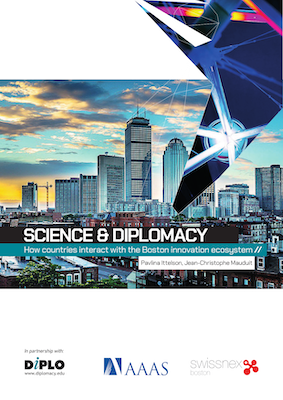Note: This article is a part of the publication ‘Science diplomacy capacity development: Reflections on Diplo’s 2021 course and the road ahead’
The complexity of contemporary global challenges has increased the need and space for Science Diplomacy. Beyond being a fashionable concept in current multilateral diplomacy, the concept of Science Diplomacy represents a fundamental trend that could contribute to reshaping and reinforcing international cooperation. As an approach that enables the development and implementation of policies based on scientific evidence, Science Diplomacy could contribute to alleviating the consequences of present-day major challenges, from armed conflicts, climate change and loss of biodiversity, to inequalities and global health issues.
The establishment of a common vision and shared priority between states is increasingly challenging. Global governance is fragmented with interest groups and alliances. In addition, states have less and less of a monopoly on international relations: new actors, such as private companies or transnational political movements, have a growing influence. Against this backdrop, Science Diplomacy is about creating the appropriate conditions for policymakers to understand scientists’ insights and for scientists to comprehend policy and political challenges. However, it not only concerns policymakers and scientists: a whole-of-society approach is needed for Science Diplomacy to be effective.
Switzerland, as a Host-State of international organizations, supports a number of platforms, which offer a neutral space for collective brainstorming and exchanges outside of formal settings, where stakeholders explore and test new ideas, share good practices, or discuss emerging issues. There are currently seventeen platforms of various sizes, covering issues ranging from human rights to the environment.
Each platform is community-driven and tailor-made to specific needs. Platforms bring together a diversity of stakeholders with an inclusive approach. They build communities, clusters of experts, and networks within Geneva, while bridging the gap with other centers of global governance and with the field. Geneva Platforms also act as knowledge hubs, providing training, conducting research and disseminating information. These activities contribute to achieving more trust between actors, building innovative partnerships, connecting knowledge, generating new thinking, and improving implementation of negotiated documents.
An excellent illustration of a Geneva Platform that contributes to building the field of Science Diplomacy is the Geneva Science-Policy Interface (GSPI), hosted by the University of Geneva. Backed by leading European research institutions. GSPI strives to enhance scientific engagement with global governance actors within the Geneva ecosystem, aiming to facilitate the emergence of effective policy and strategy solutions to complex problems.
I am convinced that Science Diplomacy is a fundamental trend that will stay with us for the coming decades, as we are witnessing a convergence of sciences that allows unimaginable scientific discoveries and technological breakthroughs. Current scientific revolutions will soon change the world. With the advent of digital technology, artificial intelligence, and robotics, human life is changing and global governance systems will have to adjust accordingly.
We need to connect scientists and policymakers on the one hand to solve current issues, and on the other hand to create mechanisms through which we can anticipate emerging issues to avoid any misuses of new technologies and to ensure that they are used for the common good of humankind. This is why the Swiss Government and the Canton of Geneva decided three years ago to launch the Geneva Science Diplomacy Anticipator (GESDA). The initiative was prompted by a growing awareness of the rapidly accelerating pace of scientific and technological breakthroughs. As a matter of fact, humanity is left with less and less time to adapt to new realities and create the legal frameworks and standards needed to regulate them.








